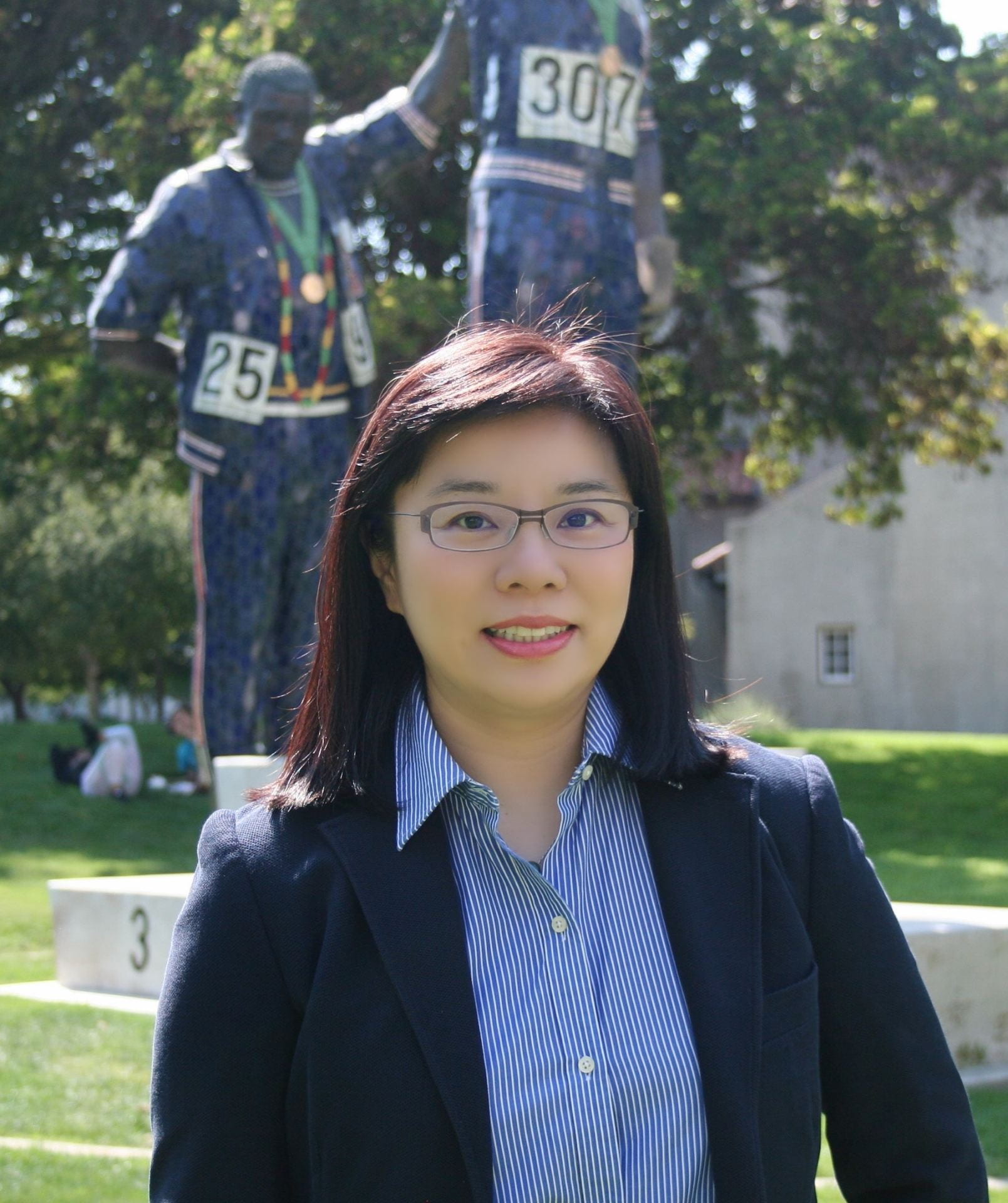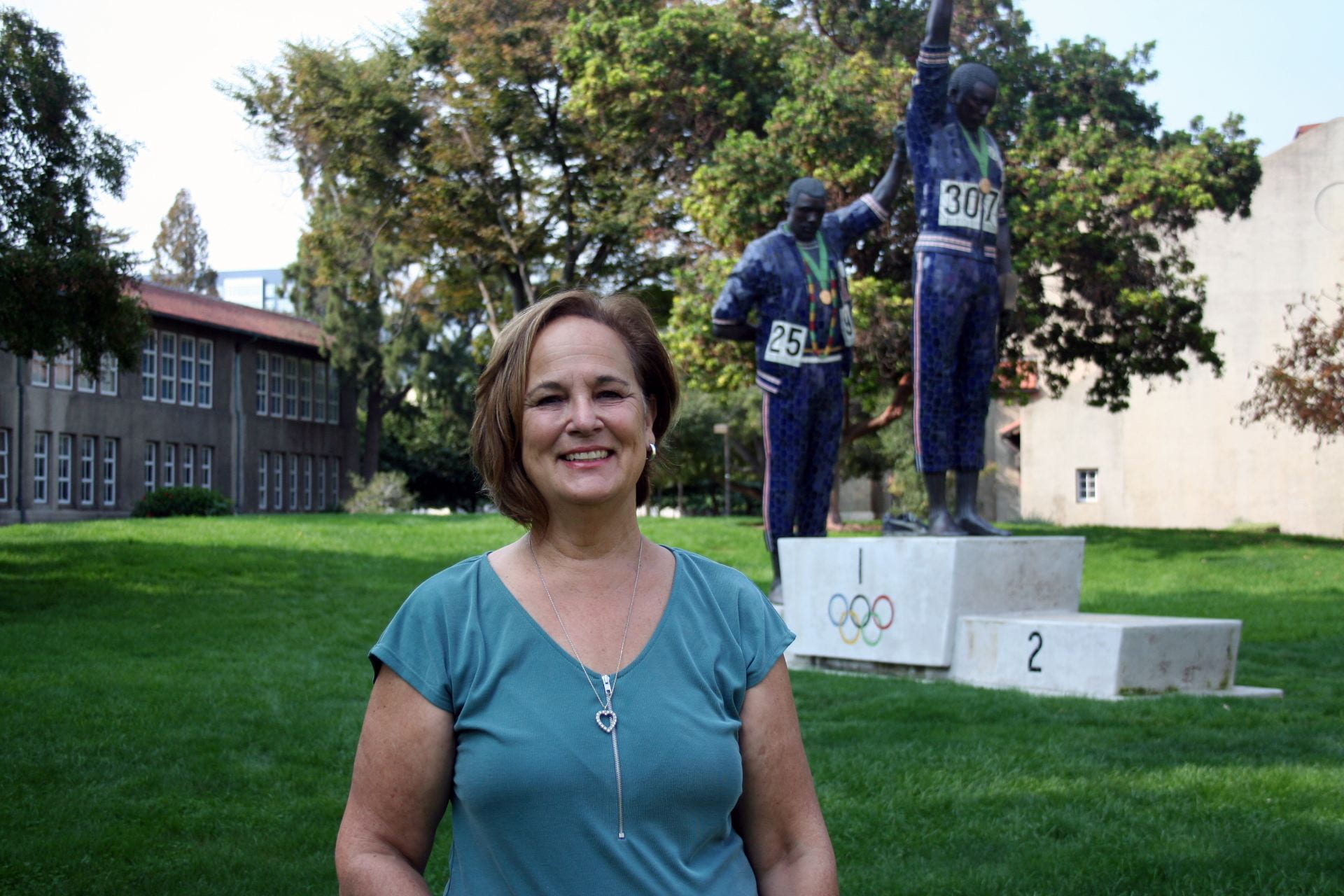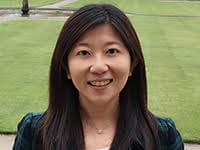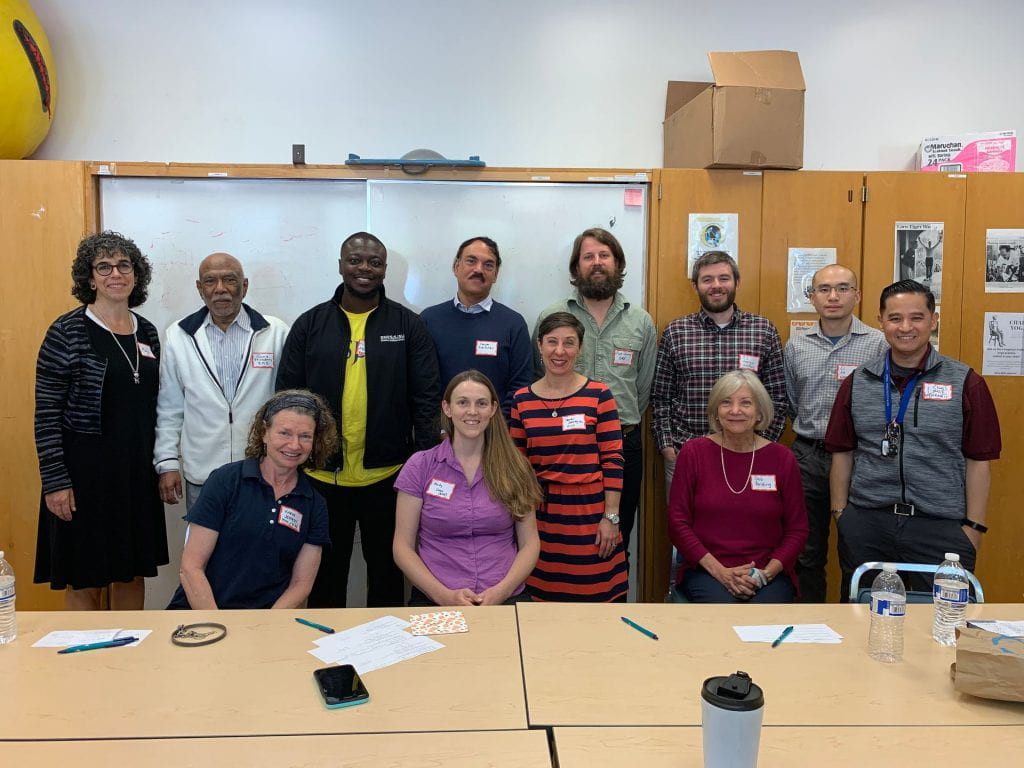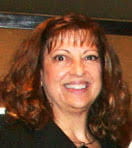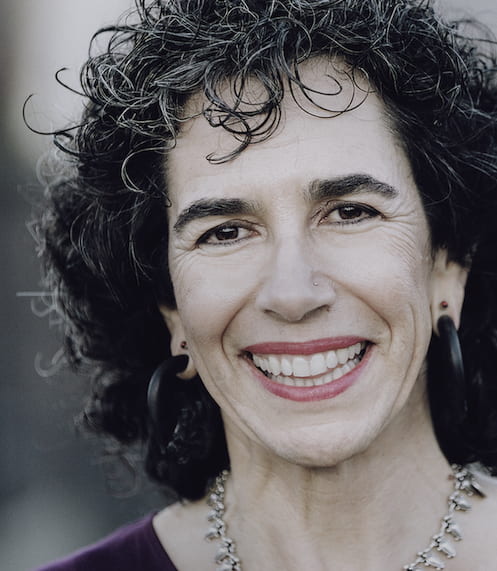 Dr. Melisa Kaye – Department of Occupational Therapy
Dr. Melisa Kaye – Department of Occupational Therapy
What is your role in your department/school?
I am an assistant professor in the Department of Occupational Therapy
What would you identify as one of the most significant actions you have taken to advance the cause for diversity either in the classroom, your community or your profession?
I came out. To my colleagues, my clients, and now to my students. I realize that in 2022, an era where we can engage in entire programs of queer study at a university level, this may not seem like a revolutionary act. In the 70s however, coming out was an enormous political and personal decision. I was beaten up, harassed, and ostracized from family and community because I was a lesbian. LGBTQ people were publicly despised and discriminated against and basic freedoms were denied to us. As a new occupational therapist in the 90s, I realized LGBTQ folks were not represented in research or in practice– coming out was terrifying because the professional stakes were so high. I was especially reluctant to come out because I worked with children and was not sure how my client’s families or my colleagues would react.
I have no need or desire to tell everyone in my work world that I am queer, but I do not want to be forced to hide my identity either. As an aspect of holding healthy boundaries, I pragmatically reveal my sexual orientation and identity in the service of teaching and professional practice only. I do not want to proclaim, “I’m queer” to everyone I meet, yet in the context of my life and my job, it is important for me to stand up and assert my right to exist. This in turn means that I stand up for my LGBTQ colleagues, clients and students. By extension, it means that I demand, to the best of my ability, that LGBTQ people have the same protections, safety, opportunity, and justice as het and cis gender folks.
I understand that queer can be a hidden aspect of diversity, whereas race is often immediately evident to others. Being able to choose whether to come out affords me privilege. It also makes me prey to my own internalized homophobia. I understand and respect that privilege, so although being LGBTQ offers me certain insights into DEI work, I would not presume equate my experiences with sexual orientation with race, ethnicity, or other diversities. I think a source of power of the DEI work many of us are currently doing is the unity that builds through mutual respect of our differences and our common aims.
How have you integrated topics of DEI into hiring new faculty and/or admitting students?
Neither hiring nor student admission are included in my responsibilities right now because I am a relatively new faculty member. The area I have worked on and continue to address is honoring and integrating DEI into our curricula. I am committed to increasing the richness of my students’ experiences in my classes and to engendering cultural humility as these students prepare for entry level practice.
Tell us about how you and why you became attentive to DEI topics. What prompted this change in your department/school? What did the process look like?
I have been steeped in issues surrounding justice, diversity, equity, and inclusion since I was a child. My mother was very active in the civil rights movement, as well as the women’s rights and disability rights movements. She was also deeply involved in worker’s rights and labor unionization. One of my first memories was being with my mom at an anti-war rally in Detroit, MI in the late 60s. We heard Angela Davis and Bobby Seale speak. I was so awed by what little I understood of the messages and also by the energy. Then, the police came in riot gear and started tear gassing the crowd. My mom was in a wheelchair and I climbed onto her lap so she could speed us through the square to get out of the gas. I was terrified and amazed, and I remember talking about it with her for a long, long time– it shaped a lot of the beliefs and perspectives I still hold today.
I, myself, have been politically active since I was a teenager. First in women’s rights and then in AIDS politics, LGBT rights, same sex marriage equality, and now as an ally in Black Lives Matter and DEI organizations. Being an occupational therapist, I am also a disability rights advocate and ally. I was active with ACT-UP and Queer Nation and then worked on the Prop 8 (same sex marriage legislation) campaign. I helped found a neighborhood political action organization in my community in 2016 after the presidential election. In sum, I have not changed who I am, I simply started integrating the work I was already doing in my communities into my roles at SJSU.
What support did you need to make it happen? Did you draw on existing resources or examples that were helpful in guiding your change?
Perhaps the greatest influence on my decision to start doing DEI work at SJSU came from a process of de-compartmentalizing my life. In 2020 when I joined SJSU as tenure track faculty member, the world felt like it was going up in flames. We had just endured four years of a political regime that publicly sanctioned sexism, racism, anti-Semitism, homophobia, ableism, and racially driven police brutality. Truth came under attack and became an easily assailable concept. COVID-19 was in full swing and our communities were in lockdown. I decided that for my own wellbeing, as well as that of my SJSU community, I wanted to do my part to be in the solution rather than succumbing to despair amidst all our many injustices and hardships.
As a means of recognizing my students’ experiences, I started by bringing current events to light in my classes. In my position, I am always conscious of not engaging in politics, yet for young adults who may never have experienced widespread injustice, it was vital to give voice to these historic issues. I remember when the spate of anti-Asian violence started and I knew I needed to acknowledge my students’ outrage and fear. I do not believe I can effectively teach if my students are not psychologically and emotionally available to learn, so the decision was driven by necessity.
I wanted to continue my work, so I applied for and was accepted to be an Affinity Mentor for Academic Success (AMAS). For the past year, I have shared my experience and worked with diverse students entering master’s programs at SJSU. I also joined CEED in Fall 2021, and got involved in DEI issues on a college level. Early on, I was introduced to the CEED needs assessment report to the college. The findings indicated that the formation of departmental DEI committees was a key action item. I brought this info back to my department, and our OT DEI committee was founded. Although we are in our infancy, the committee is up and running, which is fantastic. We balanced our membership between faculty/staff and students, and the students bring such vibrance and energy to the table. It’s an honor to be in conversation with colleagues and students, and to be working on these issues for my department, our college, SJSU, and my profession.
Tell us one book, one article, one documentary, or once movie you’ve read or watched that you would like to suggest to others that helped shape your thinking about DEI work.
Ijeoma Oluo’s book So You Want to Talk About Race was a great book because it gave voice not only to deconstructing the myriad problems facing our country with regard to race, but also to actions that BIPOC people and white allies can take to effect change.
